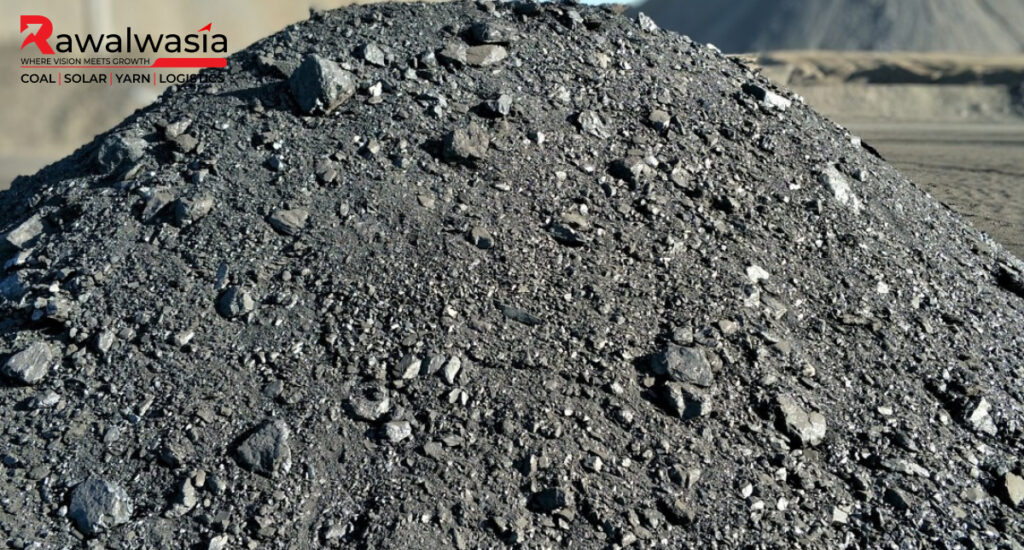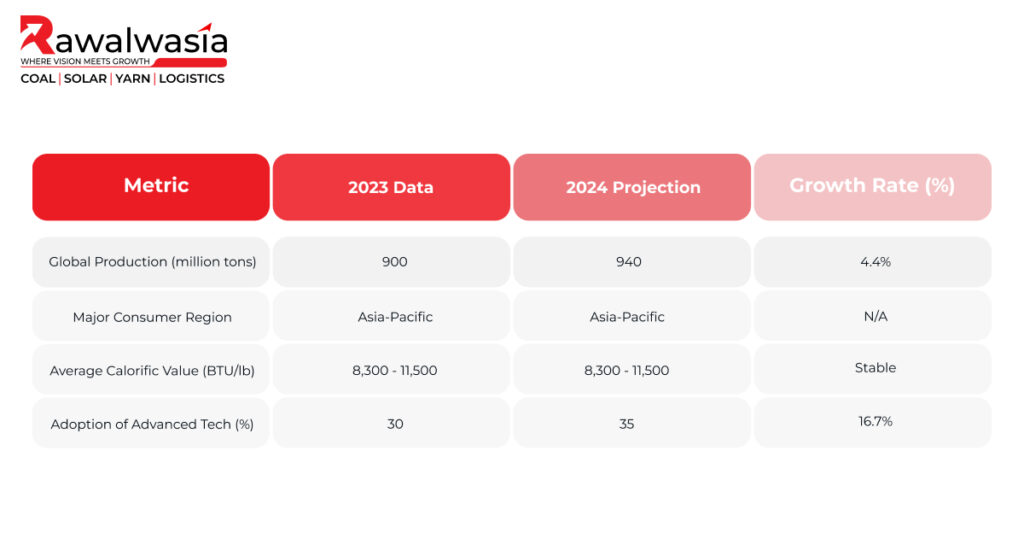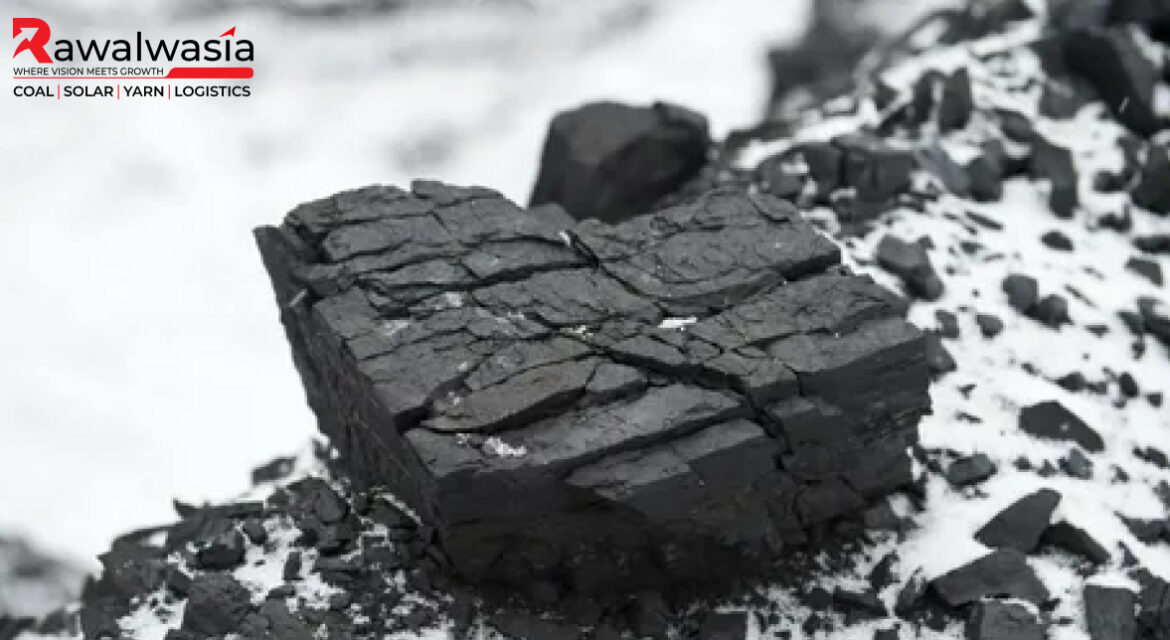
Sub-bituminous coal, a versatile and efficient type of coal, has become increasingly important in today’s global energy landscape. Sub-bituminous coal, known for its relatively low sulfur content and moderate energy yield, is a crucial fuel source for various industries, particularly power generation. This type of coal lies between lignite and bituminous coal in terms of energy content. Industries primarily utilise it for its affordability, accessibility, and lower environmental impact than coal types. In 2024, sub-bituminous coal is making strides in technological advancements and market demand, underscoring its significance in meeting global energy needs. This article explores the latest trends, facts, and innovations in sub-bituminous coal, along with an overview of the key services provided by Rawalwasia Group in this sector.
Benefits and Current Trends of Sub-bituminous Coal in 2024
Sub-bituminous coal offers unique benefits, making it an appealing energy source for industrial and commercial applications. One of the primary advantages of sub-bituminous coal is its relatively low sulfur content, which helps reduce sulfur dioxide emissions when used in power plants. This characteristic aligns well with the increasing global emphasis on cleaner energy sources, making sub-bituminous coal an attractive option for nations and companies working to reduce their carbon footprint.
Regarding efficiency, sub-bituminous coal boasts a moderate calorific value—generally ranging between 8,300 and 11,500 BTUs per pound—which balances energy output and environmental impact. With recent advancements in coal processing and energy production, industries can leverage these energy-efficient qualities to optimise their operations.
The year 2024 has seen several key trends in the sub-bituminous coal market:
- Enhanced Combustion Technologies: Companies are increasingly adopting advanced combustion technologies to maximise the energy yield from sub-bituminous coal. Technologies like fluidised bed combustion and low-NOx burners have improved efficiency rates, generating more power per coal unit.
- Digital Monitoring and Automation: Innovations in digital monitoring systems now allow for real-time tracking of coal-fired power plants’ emissions and fuel consumption. This technology enables operators to optimise the use of sub-bituminous coal by reducing waste and enhancing productivity.
- Increased Demand in Asia: Countries like China, India, and Japan rely heavily on sub-bituminous coal for power generation. According to the International Energy Agency (IEA), coal demand in Asia is projected to grow by 1.2% annually, driven by the energy needs of emerging economies.
Key Services by Rawalwasia Group in Sub-bituminous Coal Supply
As a leading supplier in the coal industry, Rawalwasia Group plays a pivotal role in meeting the demands of industries that rely on sub-bituminous coal. The company provides an array of specialised services that ensure efficient coal supply tailored to meet the needs of its clients.
Rawalwasia Group’s Key Services:
- Reliable Coal Sourcing and Distribution: Rawalwasia Group ensures a consistent and high-quality supply of sub-bituminous coal for clients across various sectors. Their strategic partnerships with global suppliers allow them to offer competitive pricing and efficient delivery schedules.
- Logistics and Transportation Solutions: Understanding the importance of timely delivery, Rawalwasia Group offers logistics solutions that streamline coal transportation, reducing downtime and enhancing customer reliability.
- Custom Coal Blending: Rawalwasia provides custom coal blending services for clients with specific energy needs to create optimal fuel mixtures. This flexibility ensures that industries receive coal products with the precise energy and emission characteristics required for their operations.
- Consultation and Technical Support: With extensive industry expertise, Rawalwasia Group offers consultation services to help clients make informed decisions about their coal requirements, including guidance on optimal usage and storage practices.
Sub-bituminous Coal: Current Data and Market Projections in 2024
The sub-bituminous coal market has experienced notable growth in recent years, with increased demand and innovations in combustion technology driving its expansion. The latest data from 2024 underscores this upward trend, showcasing how sub-bituminous coal plays an integral role in the global energy market.

This data highlights the increasing role of sub-bituminous coal in the energy mix, especially in regions such as Asia-Pacific, where industrial growth continues to drive coal consumption. Additionally, advancements in combustion technology are allowing power plants to achieve greater efficiency, ensuring the optimal use of sub-bituminous coal resources.
Innovations in Sub-bituminous Coal Technology
Technological advancements have significantly enhanced the efficiency and application of sub-bituminous coal in power generation and other industries. As of 2024, several innovations are reshaping the use of sub-bituminous coal:
- Gasification: Sub-bituminous coal gasification is emerging as a transformative technology. By converting coal into syngas—a mixture of hydrogen, carbon monoxide, and other gases—industries can utilise a cleaner and more flexible energy source. Industries can use syngas for electricity generation and chemical production and as a precursor for hydrogen fuel cells.
- Carbon Capture and Storage (CCS): Although CCS is not exclusive to sub-bituminous coal, power plants worldwide have effectively paired it with this type of coal. CCS technology allows facilities to capture carbon dioxide emissions and store them underground, reducing the environmental impact of coal-fired power.
- Advanced Thermal Efficiency: New high-temperature and high-pressure boilers are improving thermal efficiency, enabling power plants to generate more electricity with the same amount of coal. This not only reduces fuel consumption but also enhances the economic viability of sub-bituminous coal in competitive markets.
Experts expect these innovations to maintain sub-bituminous coal’s relevance in the energy industry, enabling efficient and sustainable resource utilisation.
Global Market Demand for Sub-bituminous Coal
The global demand for sub-bituminous coal remains robust, and developing Asian economies are leading. According to the International Energy Agency (IEA), the global demand for coal, including sub-bituminous, is projected to grow steadily due to emerging economies’ industrial and energy needs.
In 2024, the Asia-Pacific region will account for more than 60% of the global demand for sub-bituminous coal. India and China primarily consume this type of coal, configuring many of their power plants to use it due to its cost and energy output balance.
The market demand data demonstrates that sub-bituminous coal will continue to be an essential energy resource, particularly in regions where coal remains a significant source of power generation. The following table provides a snapshot of the regional demand for sub-bituminous coal:

Conclusion
In 2024, sub-bituminous coal will remain an indispensable energy resource, with rising demand and advancing technologies that enhance its efficiency and application. Its moderate calorific value, low sulfur content, and cost-effectiveness make it ideal for power generation and industrial uses. The global shift toward cleaner energy sources highlights sub-bituminous coal’s advantages, especially with advanced technologies like gasification and carbon capture.
Rawalwasia Group, a prominent supplier in this sector, provides comprehensive services for sub-bituminous coal, ensuring reliable sourcing, custom blending, and efficient logistics. Their commitment to quality and efficiency makes Rawalwasia Group an ideal partner for industries relying on sub-bituminous coal as an energy solution.
With ongoing innovations in combustion technology, digital monitoring, and sustainable practices, sub-bituminous coal is pivotal in the global energy landscape. As industries explore more efficient and cleaner ways to utilise coal, sub-bituminous remains a valuable resource for meeting energy demands in a sustainable and economically viable manner.






